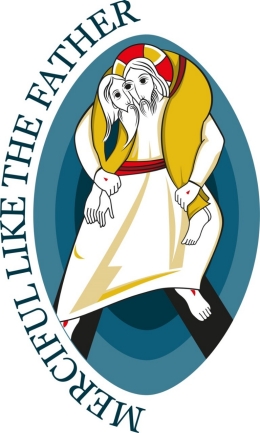 In this Extraordinary Jubilee, Year of Mercy, I’ve given talks on mercy, which meant researching this topic. I gleaned some thoughts on mercy that you might find worth pondering. Pope Francis declared the year in hopes that new flood of mercy will flow over the world. He said, “Mercy is the true power that can save humanity and the world from sin and evil.” The document announcing the year states “We need constantly to contemplate the mystery of mercy. It is a wellspring of joy, serenity, and peace.”
In this Extraordinary Jubilee, Year of Mercy, I’ve given talks on mercy, which meant researching this topic. I gleaned some thoughts on mercy that you might find worth pondering. Pope Francis declared the year in hopes that new flood of mercy will flow over the world. He said, “Mercy is the true power that can save humanity and the world from sin and evil.” The document announcing the year states “We need constantly to contemplate the mystery of mercy. It is a wellspring of joy, serenity, and peace.”
Like a precious jewel, mercy has several facets: God’s mercy in helping those in trouble, God’s mercy in forgiving sinners, our mercy in reaching out to the needy, and our mercy in forgiving others.
According to some theologians mercy is the greatest, most stupendous of God’s attributes…not God’s omnipotence, omniscience, omnipresent, immutability, and so forth. It follows that as sons and daughters of God we resemble him. We should exhibit the “divine gene” of mercy. The theme of this year is Christ’s commandment: “Be merciful just as your Father is merciful.” St. John Chrysostom said, “Mercy imitates God and disappoints Satan.”
Mercy is more powerful, more profound than justice. Blessed (or happy) are the merciful for they shall be shown mercy is considered the “umbrella beatitude.” The other beatitudes flow from it. We all long to be happy. God made us to share in his happiness. Mercy leads to happiness.
What is mercy? It is being compassionate toward those in need. The word “compassion” is a combination of the Latin words for “to suffer” and “with.” So mercy is “suffering with,” entering into the misery of others and acting to relieve it. The Hebrew word for mercy, “rahamim,” comes from the word for a mother’s womb. Mercy is like the love of a mother: unconditional, intimate, and nurturing. When we have mercy, we regard others as a mother does her children: with tenderness…and always making excuses for them.
The Mercy of God
St. Paul calls God “the Father of mercies and God of all comfort” (2 Corinthians 1:3). The Old Testament shows God’s mercy in action.
Eden. The first human beings owed God their life. But they foolishly disobeyed their Creator—just as we continue to do today. After our first parents sinned, God could have annihilated them and all of us with them! But he didn’t. He gave his created beings a second chance.
Egypt, Exodus: God had mercy on the Hebrews by saving them from slavery in Egypt. He heard their cries and led them out of Egypt toward the land he promised them.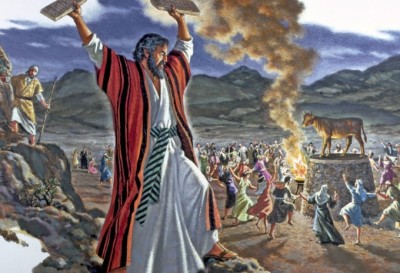
On the way, the foolish Hebrews built a golden calf and worshiped it instead of God. At that point, God had every right to abandon them. He could have said, “Forget you! I’m going to make the Philistines my people.” That would have been just. But God proclaimed to Moses, “The Lord, the Lord, a God merciful and gracious, slow to anger, and abounding in steadfast love and faithfulness…forgiving iniquity and transgression and sin” (Exodus 34:6-7).
God gave his chosen people a second chance after they sinned. He kept his promise to bring them to the promised land.
Judges: For about 300 years, the Israelites repeatedly abandoned God and worshiped idols. And repeatedly God had mercy on them, forgave their infidelity, and raised up a military leader to overthrow their enemy and bring them back to himself.
Jonah: God sent Jonah to p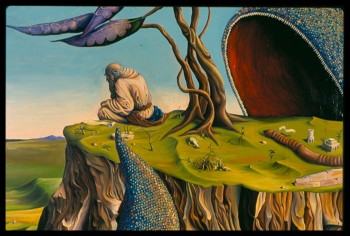 reach repentance to Israel’s enemy, Nineveh. When Jonah disobeys and sails in the opposite direction, God gives him another chance. Jonah’s preaching leads all the Ninevites to repent and God forgives them. But Jonah is upset. He wanted God to smite them all. So Jonah sits and pouts. God made a bush grow up over Jonah to provide shade. A worm comes along and kills the plant, and Jonah has a fit. Then God speaks some of the most beautiful words in Scripture: “You are concerned about the bush . . . Should I not be concerned about Nineveh, that great city, in which there are more than a hundred thousand persons who do not know their right hand from their left?”
reach repentance to Israel’s enemy, Nineveh. When Jonah disobeys and sails in the opposite direction, God gives him another chance. Jonah’s preaching leads all the Ninevites to repent and God forgives them. But Jonah is upset. He wanted God to smite them all. So Jonah sits and pouts. God made a bush grow up over Jonah to provide shade. A worm comes along and kills the plant, and Jonah has a fit. Then God speaks some of the most beautiful words in Scripture: “You are concerned about the bush . . . Should I not be concerned about Nineveh, that great city, in which there are more than a hundred thousand persons who do not know their right hand from their left?”
King David: David committed adultery. Then when the woman became pregnant, he connived to have her husband, one of his own soldiers, killed in battle. David even had the man carry the letter to the general with the orders to position him where he would be killed. How horrendous! Still, after David repented, God forgave him, and David is known as Israel’s greatest king. In addition, he had the honor of being the ancestor of Jesus.
And then, of course, there is God’s crowning act of mercy: “God so loved the world that he gave his only son, so that everyone who believes in him may not perish but may have eternal life” (John 3:16).
This is the extravagant mercy that Mary praises God for in her canticle, the Magnificat: “His mercy is from age to age to those who fear him.”
We have all experienced God’s mercy as a human race and personally, as individuals. We can always come back to God and be sure that he will forgive us. God’s mercy is unearned, undeserved, not owed.
Do you agree that mercy is God’s most outstanding attribute? Or would you say another one?
When has God shown mercy to you?




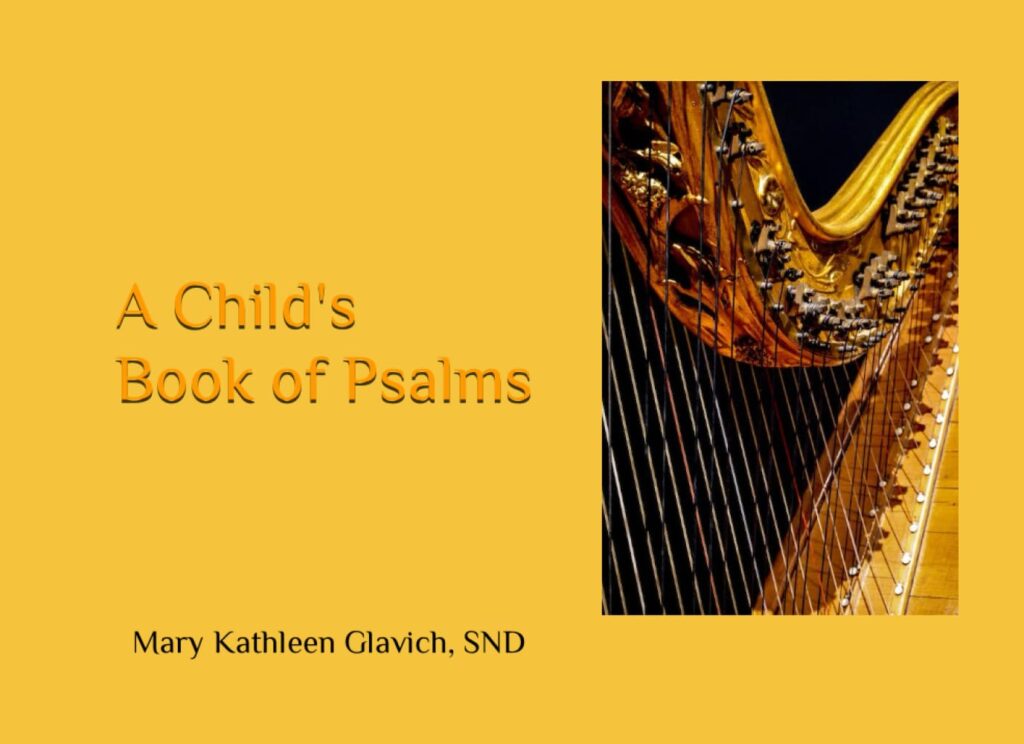
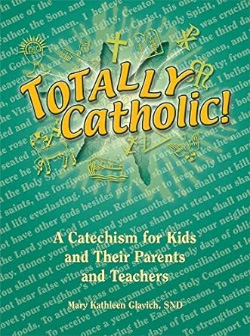


4 Responses
Hey Sister,
Well, I’ll get the ball rolling on this one.
You quoted John 3:16. If you continue read that chapter, it ends with a bomb. John 3:36, “Whoever believes in the Son has eternal life, but whoever disobeys the Son will not see life, but the wrath of God remains upon him.”
Pretty harsh words from our Lord, if I do say so myself.
I’m not saying God isn’t merciful, I think we all can agree that He is. But I do think that God does draw a line. Much of the OT is about God showing His people what that line was. Hence the 10 commandments, sending the prophets and, of course, sending His Son.
So, for me, when I think His attributes, the one that sticks in my mind is how just He is. When it is all said and done, you can’t say He didn’t warn us.
Mark
Yes, you make a good point, Mark. The words of Jesus indicate that it’s not enough to believe in him, but we must follow him, that is, live according to his teachings. Those who “disobey” and don’t repent risk eternal damnation. They choose to be the “bad fish” and the “weeds” sorted out at the end of the world. I think God is angry when his creation fails him. He probably is very sad too. (But anger and sadness are human emotions, which really aren’t applicable to God, who is beyond all our conceptions of him.)
Awesome song. I read Danny Gokey’s book over summer. Have it in front of me. It was an awesome read. He never gave up and believed in his faith and hope that God will pull him through the tragedy of losing his wife. He was given Mercy from God after he made amends for the wrongs he did while depressed over loss. It shows how much God forgives us if only we trust in him to go to him forgiveness and mercy.
Kathy, did you see Danny on the “American Idol” show?